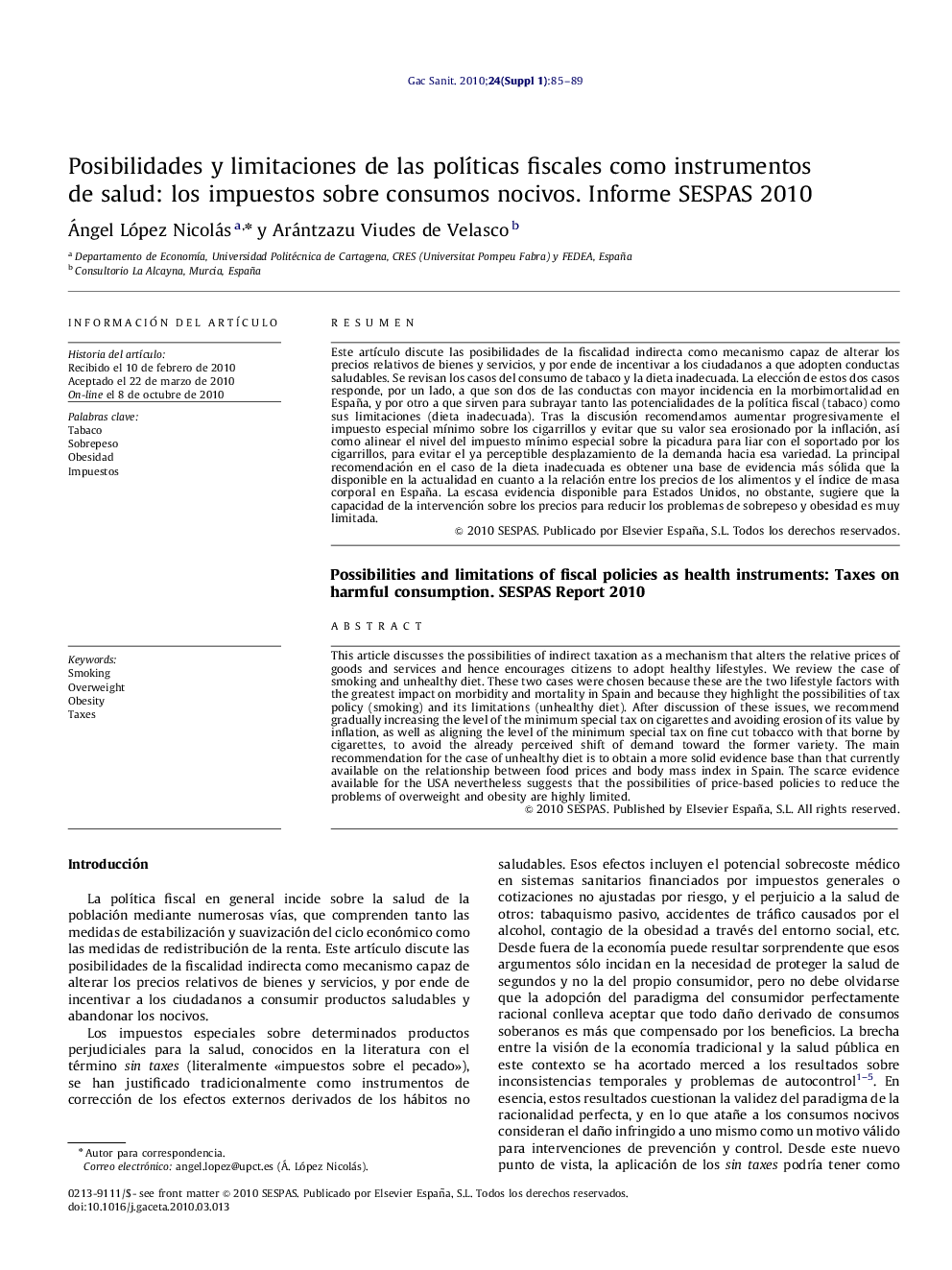| Article ID | Journal | Published Year | Pages | File Type |
|---|---|---|---|---|
| 1074395 | Gaceta Sanitaria | 2010 | 5 Pages |
Abstract
This article discusses the possibilities of indirect taxation as a mechanism that alters the relative prices of goods and services and hence encourages citizens to adopt healthy lifestyles. We review the case of smoking and unhealthy diet. These two cases were chosen because these are the two lifestyle factors with the greatest impact on morbidity and mortality in Spain and because they highlight the possibilities of tax policy (smoking) and its limitations (unhealthy diet). After discussion of these issues, we recommend gradually increasing the level of the minimum special tax on cigarettes and avoiding erosion of its value by inflation, as well as aligning the level of the minimum special tax on fine cut tobacco with that borne by cigarettes, to avoid the already perceived shift of demand toward the former variety. The main recommendation for the case of unhealthy diet is to obtain a more solid evidence base than that currently available on the relationship between food prices and body mass index in Spain. The scarce evidence available for the USA nevertheless suggests that the possibilities of price-based policies to reduce the problems of overweight and obesity are highly limited.
Related Topics
Health Sciences
Medicine and Dentistry
Public Health and Health Policy
Authors
Ángel López Nicolás, Arántzazu Viudes de Velasco,
